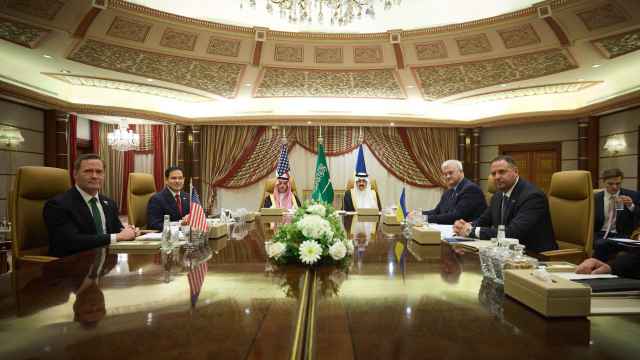Russia's improving cooperation with the United States on product testing and industrial standards will increase international trade and facilitate the free flow of goods, experts said at the U.S. — Russia Standard and Conformity Assessment Forum organized by the World Trade Center in Moscow on Thursday.
The forum brought together representatives from the U.S. and Russian government, standard setting bodies and accreditation organizations.
With its new role as a World Trade Organization member, Russian officials used the event to showcase the country's acceptance of the principles of the WTO Technical Barriers to Trade Agreement.
"The main idea of this forum is to become familiar with the standard setting principles in Russia and the U.S. and to establish contacts between industry representatives and technical committees that set standards in Russia and the US," said Vladimir Salamatov, general director of The World Trade Center.
"A system of accreditation, discussed at the forum, allows countries to accept results of [product] tests performed in other countries. For example, a product tested in Boston will be ready to sell in Moscow, or a product tested in St. Petersburg, could be sold in Washington without delay," Salamatov said. "The main idea is after a competent organization confirms safety of a product, it can be immediately sold on other markets, not just domestically," he added.
An open dialogue helps to identify the standards that are instrumental in economic progress, Salamatov added. Making these standards international will not only help international trade, but also identify new opportunities for growth and assist developing economies to fast tract their economic progress.
Yevgeny Petrosyan, deputy chief of the Federal Service for Technical Regulations and Measures, or Rosstandart, said standards helped in making business decisions and facilitated modernization of the economy. He called for creation of a technical dictionary to better understand terminology used in English and Russian languages.
The Russian government is working on an accreditation law that is expected to go into effect in June 2014, said Savva Shipov, head of the Federal Accreditation Service. The law will give accreditation bodies legal powers to enforce standards compliance by manufacturing businesses and reduce corruption and accreditation fraud that exists today.
Contact the author at g.moukine@imedia.ru
A Message from The Moscow Times:
Dear readers,
We are facing unprecedented challenges. Russia's Prosecutor General's Office has designated The Moscow Times as an "undesirable" organization, criminalizing our work and putting our staff at risk of prosecution. This follows our earlier unjust labeling as a "foreign agent."
These actions are direct attempts to silence independent journalism in Russia. The authorities claim our work "discredits the decisions of the Russian leadership." We see things differently: we strive to provide accurate, unbiased reporting on Russia.
We, the journalists of The Moscow Times, refuse to be silenced. But to continue our work, we need your help.
Your support, no matter how small, makes a world of difference. If you can, please support us monthly starting from just $2. It's quick to set up, and every contribution makes a significant impact.
By supporting The Moscow Times, you're defending open, independent journalism in the face of repression. Thank you for standing with us.
Remind me later.





